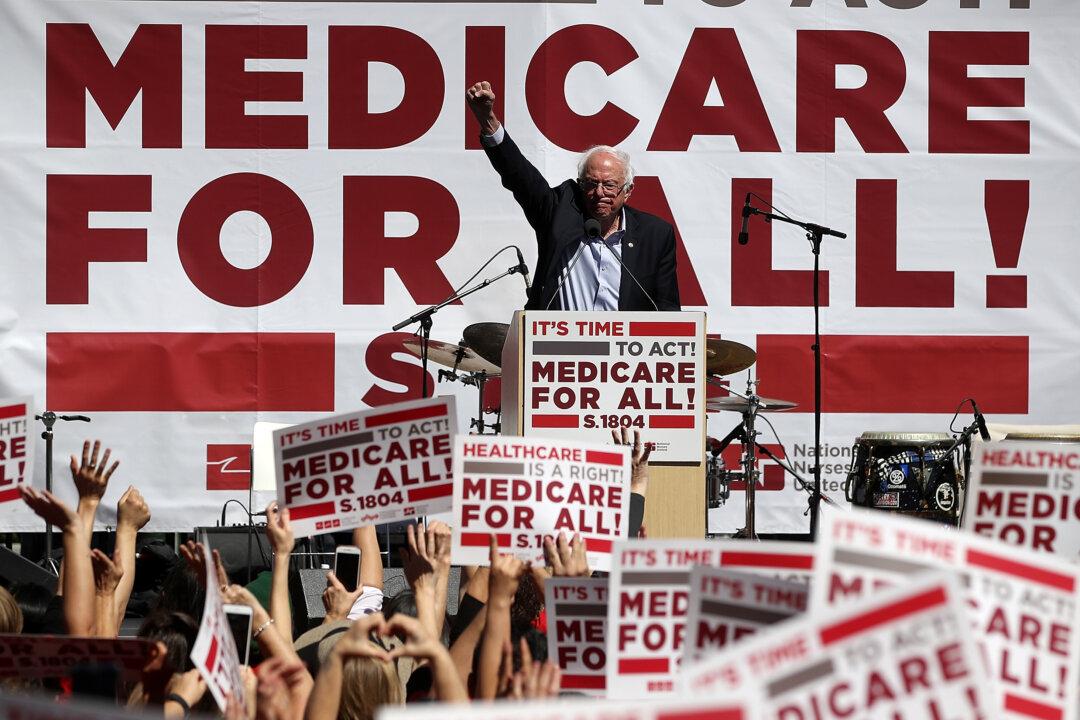Democratic presidential candidates’ spending programs such as Medicare for All and free college tuition would cost, on average, $40 trillion over 10 years, but their “tax the rich” plans will only raise about $4 trillion, according to a new study.
The list of new spending ideas put forth by the top Democratic presidential seekers runs the gamut from the Green New Deal and more generous Social Security benefits to universal child-care and student debt cancellation.





